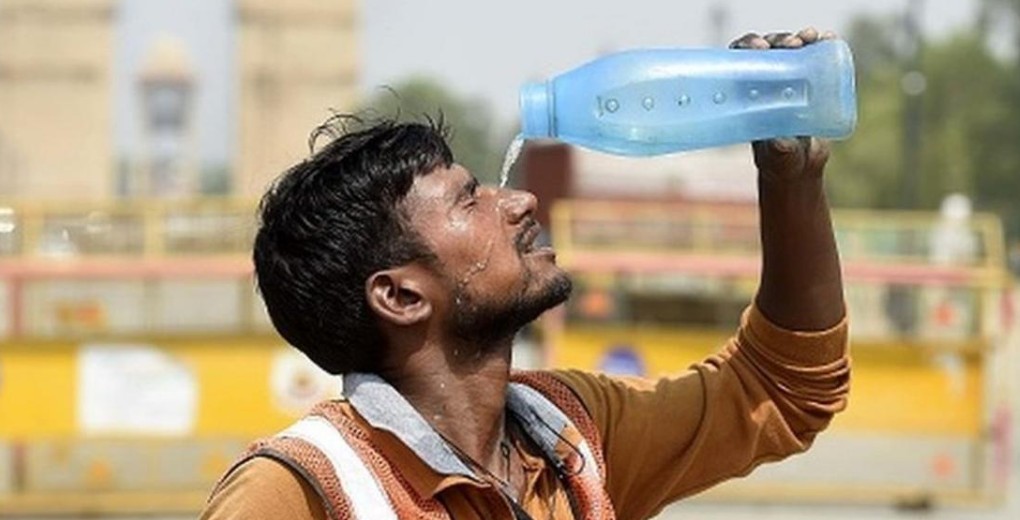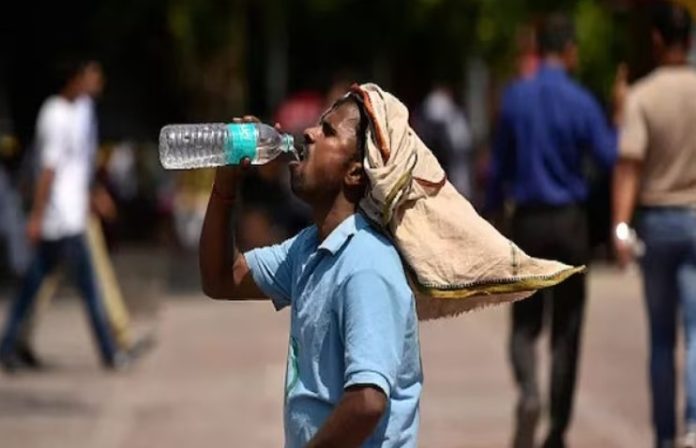Punjab, known for its rich agricultural heritage and moderate climate, is currently witnessing an unusual weather pattern with day temperatures soaring above normal in isolated areas. This unexpected rise in temperature has raised concerns among farmers, environmentalists, and residents alike, as the state’s economy heavily depends on agriculture and favorable weather conditions during this season.
In recent days, several districts, including Amritsar, Ludhiana, Patiala, and Bathinda, have reported higher-than-usual temperatures during the afternoon hours. The intense heat is not only causing discomfort to the local population but also raising alarms for the agricultural sector, which is the backbone of Punjab’s economy. The wheat crop, which is currently in its crucial growth stage, is particularly vulnerable to heat stress. If the temperature remains high for an extended period, it can lead to premature ripening and reduced yield, directly impacting the livelihoods of farmers.
Meteorological experts have attributed this sudden rise in temperature to changing atmospheric pressure and shifting wind patterns. The lack of moisture in the air, combined with clear skies, has resulted in direct heating of the land surface, causing the mercury to rise. While the region typically experiences moderate temperatures during this time of the year, the current heatwave-like conditions are unusual and concerning.
For farmers like Gurpreet Singh from the outskirts of Ludhiana, the rising temperatures have become a significant challenge. With fields full of wheat crops nearing harvest, he worries about the impact of heat stress on the grain’s quality and yield. Excessive heat during the grain-filling stage can lead to shriveled grains and reduced productivity, ultimately affecting the income of thousands of farmers across the state.

The urban population is also feeling the brunt of this weather shift. Residents of cities like Amritsar and Patiala are experiencing uncomfortable afternoons, with temperatures soaring above normal. The elderly and children are particularly vulnerable to heat-related illnesses, prompting health authorities to issue advisories on staying hydrated and avoiding prolonged exposure to the sun.
Environmental experts believe that this sudden increase in temperature is not an isolated event but rather a consequence of climate change and global warming. Over the past decade, Punjab has witnessed fluctuating weather patterns, including unseasonal rains, hailstorms, and rising temperatures. These climatic changes have disrupted traditional farming cycles and increased the vulnerability of crops to pests and diseases.
The Punjab Agricultural University in Ludhiana has been closely monitoring the situation and advising farmers on adaptive measures to mitigate the impact of heat stress. Experts recommend adopting climate-resilient crop varieties and practicing efficient irrigation techniques to retain soil moisture and protect crops from excessive heat.
In response to the situation, the Punjab government has also stepped in to support farmers. Agricultural extension officers are visiting fields to provide guidance on protecting crops from heat damage. Additionally, the state government is working with meteorological agencies to provide timely weather forecasts and alerts to farmers, allowing them to take preventive measures.
Health officials are also on high alert, as heatwaves can lead to heat strokes, dehydration, and other health complications. Hospitals and primary health centers have been directed to prepare for an increase in heat-related cases. Citizens are being urged to stay indoors during peak heat hours, drink plenty of fluids, and wear light, breathable clothing.
While the current situation is concerning, weather experts are hopeful that the arrival of light showers or a change in wind patterns in the coming days could provide some relief. However, they warn that the state needs to brace itself for more such incidents in the future due to the long-term impacts of climate change.
In the long run, experts emphasize the need for sustainable agricultural practices and environmental conservation efforts to combat the effects of rising temperatures. Increasing green cover, adopting water-saving technologies, and promoting renewable energy sources are some of the steps that can help mitigate the impact of climate change on Punjab’s agriculture and overall environment.
As Punjab navigates through this challenging phase, the resilience of its farmers and the support from government agencies will play a crucial role in minimizing the damage caused by rising temperatures. The hope remains that timely interventions and adaptive strategies will help the state overcome this weather anomaly and protect its agricultural heritage for future generations.


